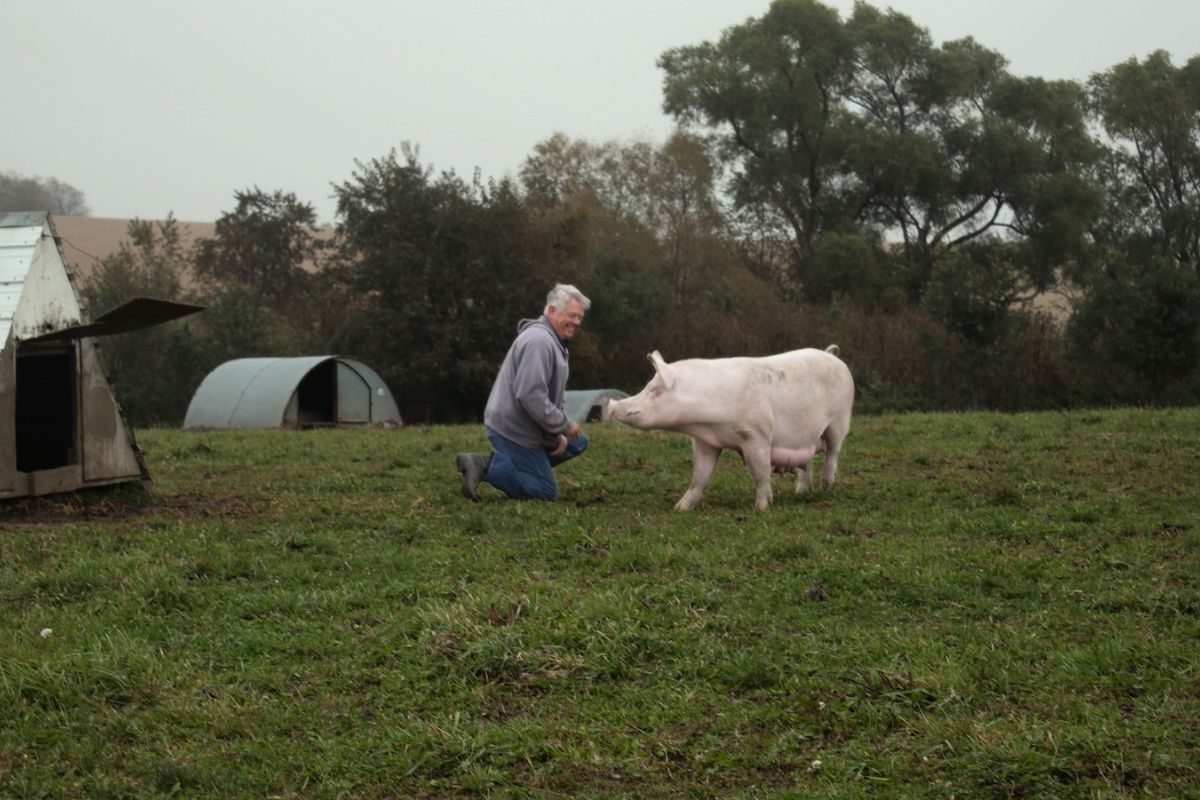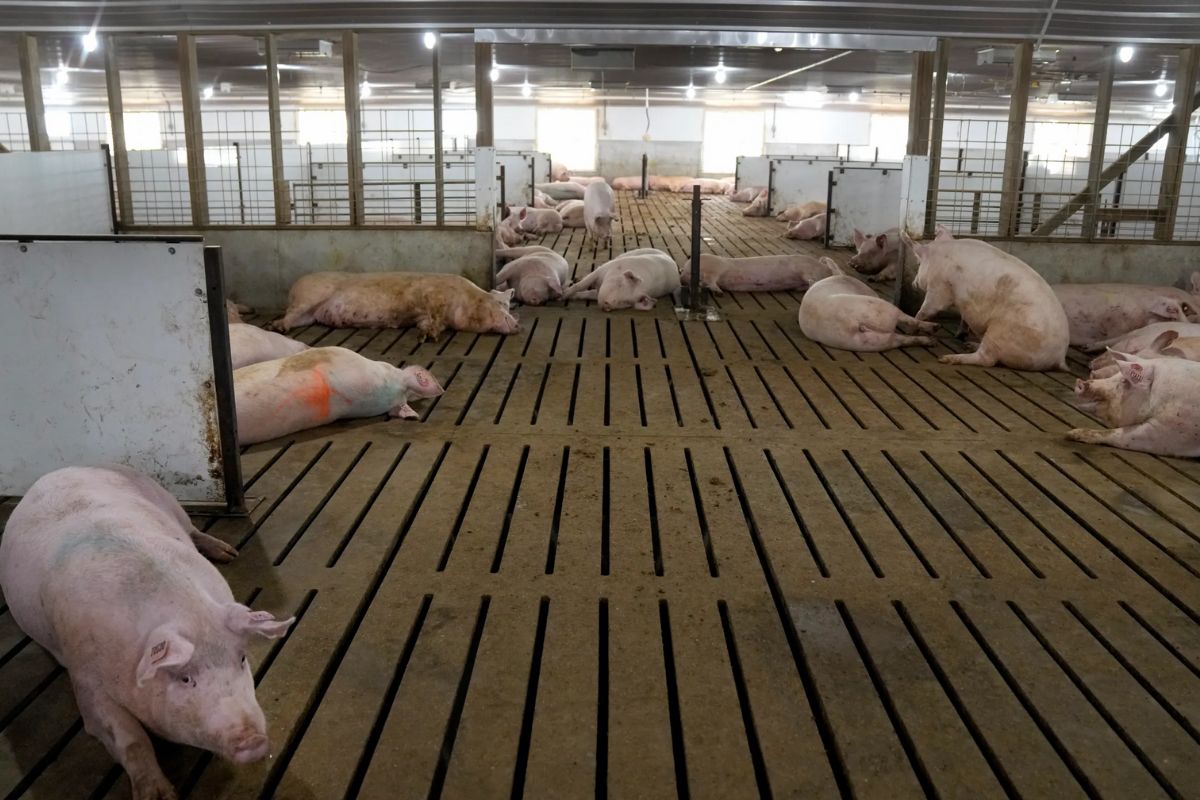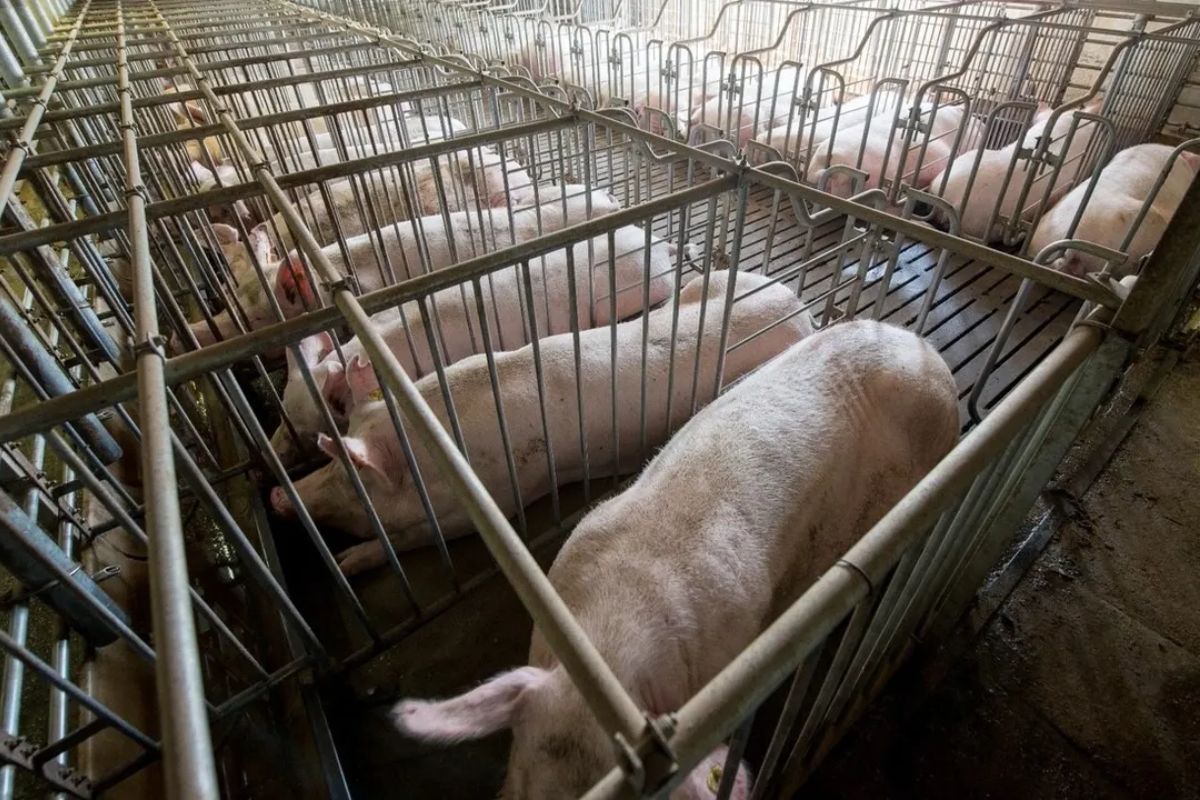How California Crate-Free Law: The implementation of California’s crate-free law, Proposition 12, has sparked significant changes in the hog farming industry, stirring both optimism and skepticism. As hog producers adapt to meet the new animal welfare standards, questions arise about the potential economic repercussions of this shift.
By examining the intricacies of this legislative mandate and its implications for farmers, consumers, and the market at large, a clearer understanding of the transformative impact of Prop 12 emerges. This legislation not only addresses ethical concerns but also sets the stage for a broader discussion on the future of sustainable agriculture practices in California and beyond.
Proposition 12: A Positive Shift in Animal Welfare Standards
Proposition 12 represents a significant milestone in enhancing animal welfare standards within the state of California by requiring crate-free conditions for pork production. This law, along with Massachusetts’ Question 3, reflects a growing societal concern for the well-being of animals in agricultural practices. By addressing the use of gestation crates, Proposition 12 aims to improve the living conditions of pigs, allowing them to move more freely and engage in natural behaviors.
The public’s support for Proposition 12 indicates a shift in attitudes towards animal welfare, with consumers increasingly demanding products that align with ethical standards. This legislation not only benefits the animals but also offers stability to the market for crate-free pork. By setting clear guidelines for producers, Proposition 12 ensures a more humane approach to hog farming while creating economic opportunities for farmers who embrace crate-free practices.
Niman Ranch’s Perspective: Supporting Prop 12 for Animal Welfare and Market Stability
Niman Ranch, renowned for its commitment to high animal welfare standards in meat production, firmly advocates for and sees significant value in supporting the implementation of Prop 12 for both animal welfare improvements and market stability. As a leader in high animal welfare meat, Niman Ranch aligns its values with the principles embedded in Prop 12.
The law plays a crucial role in ensuring a stable market for crate-free pork, thereby preventing any corporate backtracking on animal care commitments. By endorsing Prop 12, Niman Ranch not only upholds its ethical responsibility towards animals but also supports a more sustainable and humane approach to farming. This legislation benefits both animals and farmers alike, offering a clear and progressive path forward for those embracing crate-free practices.
Niman Ranch’s perspective underscores the importance of Prop 12 in reshaping the landscape of hog farming towards greater compassion, responsibility, and market reliability.
Facts About Prop 12: Dispelling Myths and Misconceptions
In light of the factual information surrounding Prop 12, it is essential to address and clarify common misunderstandings and inaccuracies to provide a more accurate understanding of the legislation’s impact on hog farming practices. Contrary to misconceptions, Prop 12 does not mandate all farms to go crate-free; compliance is not obligatory, affording farmers the flexibility to choose their production methods.
Only about 8 percent of mother pigs in North America need to adhere to Prop 12 standards, leaving the majority of hog farming operations unaffected by the legislation. Despite initial concerns and opposition, the supply of Prop 12-compliant pork has proven to be adequate, alleviating worries about potential shortages in grocery stores.
These facts highlight the nuanced nature of Prop 12, showcasing that while it sets standards for animal welfare, it does not impose a one-size-fits-all approach on hog farmers, thus fostering a more balanced perspective on the legislation’s implications for the industry.
Challenges and Opposition: The EATS Act and Efforts to Roll Back Prop 12
Amidst the ongoing discourse surrounding animal welfare legislation in the pork industry, the introduction of the EATS Act has sparked contentious debates regarding the potential rollback of Prop 12 and other state-specific regulations. The clash of opinions on this matter has brought several challenges and oppositions to light:
- EATS Act Impact: The EATS Act, a response to Prop 12, aims to dismantle not only Prop 12 but also other state laws governing animal welfare.
- Farmer Perspectives: While some argue that Prop 12 is detrimental to farmers, there is opposition indicating that it offers an opportunity for specialized producers.
- Debating Industry Impact: The ongoing debate surrounding Prop 12 reveals differing perspectives on its effects within the pork industry.
- Regulatory Uncertainty: The potential rollback of Prop 12 and other state regulations creates uncertainty within the industry, leading to further complexities in navigating the evolving landscape of animal welfare laws.
Also Read: California Primary Election Early Voting in Full Swing!
Looking Ahead: Niman Ranch Calls for Forward-Thinking Solutions
As the pork industry navigates challenges ranging from high grain prices to labor shortages and industry consolidation, a call for forward-thinking solutions emerges from Niman Ranch. Rather than seeking to overturn Prop 12, Niman Ranch advocates for innovative approaches to meet the increasing consumer demand for higher welfare meat. The ongoing Farm Bill negotiations present a crucial opportunity to address the broader issues facing the pork industry in a sustainable and ethical manner.
Chris Oliviero, the General Manager of Niman Ranch, stresses the significance of Prop 12 for both animal welfare and economic prospects, dispelling myths and addressing opposition in a recent op-ed. By emphasizing the importance of a forward-thinking approach in the pork industry amidst ongoing debates and challenges, Niman Ranch aims to steer the industry towards a more ethical and prosperous future.
It is essential for stakeholders to embrace innovative solutions that not only meet consumer expectations but also ensure the long-term sustainability and welfare of the pork industry.



